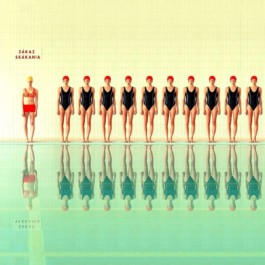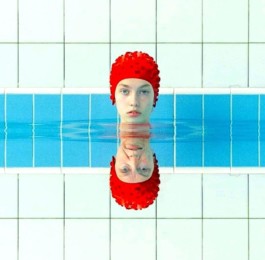UNTITLED
There's a beautiful montage video here (by Mubi) about the power of film and the insights of the philosopher Emmanuel Levinas on how our encounters with the faces of others have the capacity to bring about transformation. Also, some of the script is typed out below... In a surge of inspiration, I transcribed it, to let it sink in more deeply (link)
This 'gestalt of a person', seen in a face, reminds me of how icons are used for worship and prayer, faces shining out of a hinterland that acknowledges the cycles of experience. And there's this sense of repetition that I also find fascinating. How repetition comes into language, how a poem repeats to teethe out the essence of what's being shared. How we repeat stories over and over to each other in the search for truth. The repetition of text is inherent in technology and social media. In movement; the practice of yoga, the choreography of a dance. In painting; the study of the repeating patterns in things and in bodies and faces. And in photography like in these images of Maria Svarbova.
A novel I've just been reading by Murakami is about a man who is a railroad station engineer in Japan. In his spare time after work, to seek reassurance and relaxation, apart from swimming laps in his local pool, he goes and sits on the platform of a busy station in central Tokyo and watches people getting off and boarding the night trains. When he takes his first trip abroad, to Finland, he does the same at Helsinki Central Station. Like repeating a mantra in meditation, the repetition of movement and faces soothes his mind, gives him a mirror through which he can feel his own body and thoughts, the story of his own life, his achievements in designing and building stations, what they symbolise for him in enabling people to go on these thousands of different journeys, and what's brought him to the point he is at now.
Most importantly it displays to him the continuity of life, humanity's natural need to keep moving, connecting, and evolving, which helps him to heal a traumatic rupture of relationships he experienced in his early life. Part of this healing is also meeting with one single person, a woman who sees him, recognises something in him through her own wounding and self-discovery and, motivated possibly through the need to integrate the shadows of her own story, encourages him to go on a pilgrimage back to the people who hurt him so badly, to reconcile the past. The title is 'Colorless Tsukuru Tazaki and his Years of Pilgrimage' in case you feel inspired to get a copy, it's brilliant




'It was Emmanuel Levinas who was among the first philosophers to really explore the implications of the face of the other... not the literal faces, but rather he was trying to articulate what is known in German as the 'gestalt' of a person...
For Levinas, the face of the other had deeper implications. It was not just a comforting experience to ease our existential dread. It was also a moral imperative... The inverse... When we accidentally or intentionally cause harm to another human being... what this really reveals about us and the nature of humanity...
'(This is) not just psychological... there's an undeniable physiological aspect to it as well... But I wonder if there is more to it than that. Levinas argued that there is a theological aspect to this. Meaning that he believed, to simplify it somewhat, that in the face of the other, we also see the face of God. Or at least a reflection of the divine...
'We are biologically incentivised to not hurt each other... As we get caught in abstractions, as we lose sight of the full humanity of others, we can easily lose sight it our own too. We deny what is really inside us to conform with ideas of who we think we should be and become the very categories that we use to shrink down others...
'But just as we experience guilt when we harm others... our body reacts by slowly disconnecting us from the outside. Even though we might exist in the same world physically, touching things just doesn't feel the same; colours don't seem as bright, music feels distant... Our body is essentially screaming at us, imploring us to come back...
'(For Levinas) part of the issue of this every day dehumanisation is that we almost automatically tend to put ourselves at the centre of the universe. Not just as a pragmatic consequence of literally experiencing the world from an individualistic perspective, but also as a result of philosophical traditions that have always assumed that realty is to be understood from the perspective of the self, or, more simply put, from the inside out... Other people as an extension of ourself...
'(This) brings us back to the face, which is the way to release us from this imprisonment. 'The light in the eyes of others, they guide you on your way...' Maybe the full weight of humanity should overwhelm us. Maybe it should hurt us to the point where it forces us to change our ways...'
*photography by Maria Svarbova
Copyright © 2020 Rebecca Brewin, all rights reserved. rebecca@handtoearth.net +44 (0) 789 693 6625 Return to top